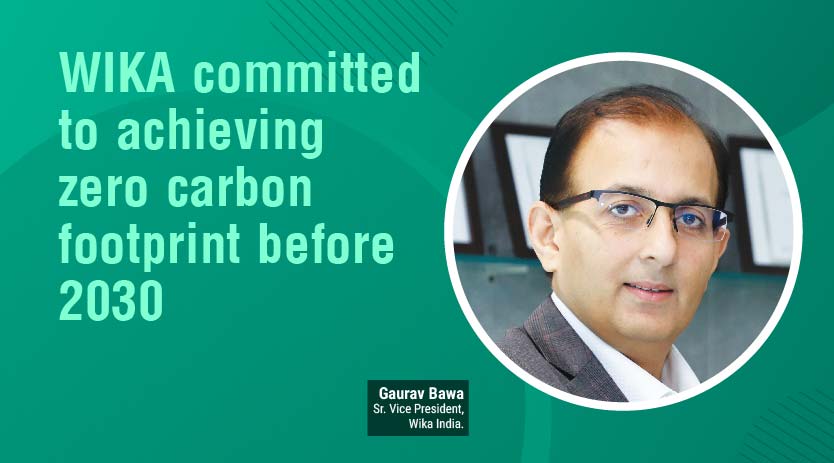The budget aims to achieve unified growth across critical sectors
March 1, 2023 6:31 pm
The current budget assures the development of long-term infrastructure and manufacturing growth. As a result, machine tools are expected to experience substantial growth in the coming years.
Budget 2023: Amrit Kal
The budget, named “Amrit Kal”, which outlines seven key focus areas, serves as a definite indicator that we are on the right path. In addition to promoting environmental sustainability, this budget prioritizes inclusive development, capital expenditure for infrastructure and manufacturing, strengthening the financial system, and focusing on educating and skilling the youth. This budget and recent ones maintain a consistent approach and a reachable goal of holistic growth across various sectors. We must recognize that we are establishing solid foundations to support tomorrow’s structures’ development. Therefore, I commend the Hon’ble PM for his vision and the FM and her team for their unwavering commitment to progress despite external fluctuations.
Opportunities in Defence
The government’s focus on strengthening the armed forces in the face of global volatility and ongoing conflicts in East Europe is reflected in the defence budget, which is aligned with their long-term objectives. Despite inflationary adjustments, the budget remains on track, enabling our armed forces to continue investing in capital equipment and infrastructure development, particularly in the northeast region. While procuring advanced equipment, ammunition, aircraft, machinery, etc., is essential, it is equally important to maintain these resources to prevent failure during critical missions.
PLI, CG Schemes, and other financial outlay
The reduction of customs duty on machine tools used for manufacturing electric vehicles, the extension of credit guarantee and PLI schemes to 14 sectors, and support for manufacturing new AAT products are measures aimed at aiding MSMEs involved in manufacturing. The PLI scheme, in particular, promotes local manufacturing, particularly in areas that the government has identified as critical to the country’s growth in the coming years. Since the incentives are tied to actual production, industries and the nation reap the rewards. The CG scheme also addresses the issue of easy and timely credit disbursals without collateral for micro and small enterprises. Such enterprises play an essential role in nation-building in two significant ways – first, by producing first-generation entrepreneurs who are passionate about their ideas and products, and second, by generating employment for young people to learn and contribute to key manufacturing areas from an early age.
Future role for MSE growth
Beyond the budget, the government’s efforts to support the MSE sector are evident. Waivers for tender fees and performance, as well as preferential purchasing by the public and defence sectors, present significant opportunities for MSEs to benefit from the overall growth of the manufacturing industry. Post-budget, MSEs continue to benefit from the schemes and initiatives introduced by the government in the 14 key growth sectors. Many MSEs have already availed themselves of these opportunities. They now have greater access to operational funds, timely receipt of customer payments within 30-45 days, and the ability to bid preferentially on the GeM portal.

The introduction of new courses in 3-D printing for skilling
Under the recently launched PMKVY initiative, the government plans to skill over 300,000 youths in the coming years. As part of this effort, 30 National Skill Development centers are being established to provide training and skill sets in modern manufacturing techniques such as Industry 4.0, 3D Printing, AI/ML, and Robotic Manufacturing. As an industry leader, we are also working on initiatives to train and upskill the “Amrit Peedhi” and equip them with the necessary tools to take our manufacturing sector to new heights.
Skilling initiatives for sustainable development
With the ambitious Aatmanirbhar Bharat plan underway, we need a trained workforce familiar with current technologies and practical exposure to real-world problems. The government’s skilling initiatives are supported by top brands and professionals in the country and abroad, marking a departure from the rote learning methods of the past. Modern learning encourages problem-solving in real-world cases, providing job-ready professionals who can quickly apply their skills in the industry. Impact of the budget on the machine tools industry and local manufacturing.
The growth of the machine tools industry depends on overall manufacturing growth across multiple sectors, both domestic consumption and export. With infrastructure development and newer technology requirements emerging from core sectors, the machine tools industry is responsible for meeting the subsequent demand. The current budget prioritizes long-term infrastructure development and manufacturing growth, leading to a significant expansion of the machine tools industry in the coming years.

Cookie Consent
We use cookies to personalize your experience. By continuing to visit this website you agree to our Terms & Conditions, Privacy Policy and Cookie Policy.

















